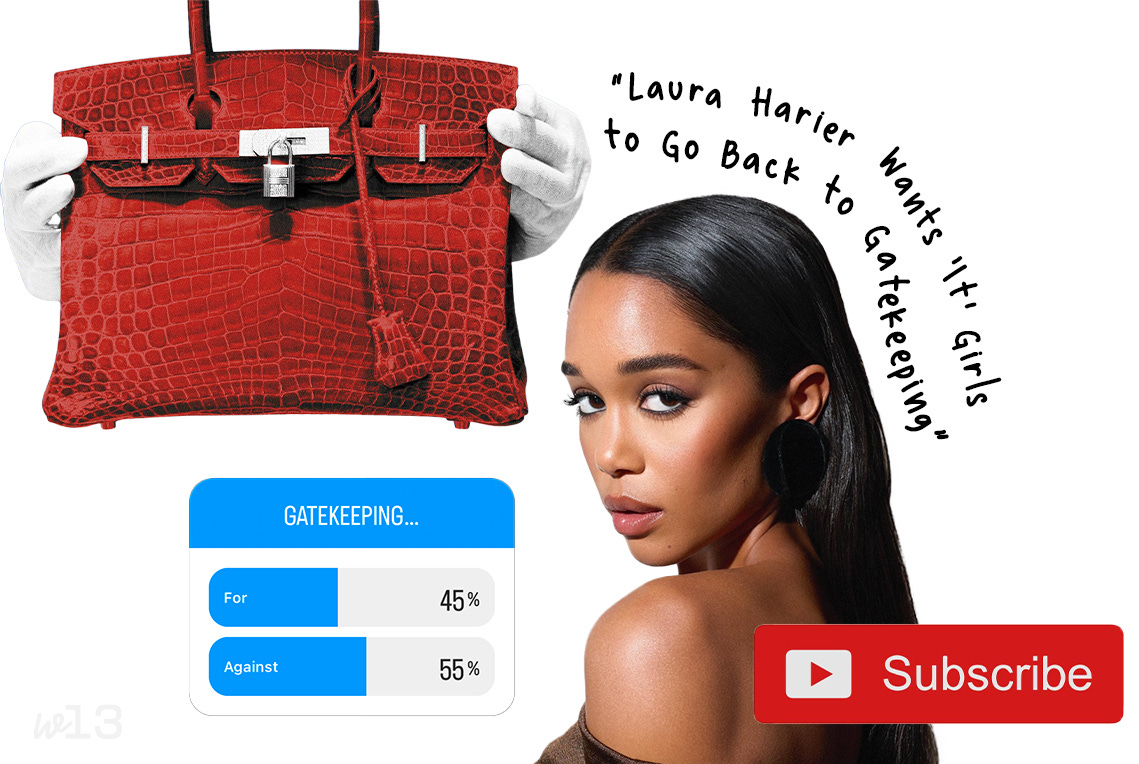As with most things, particularly where capitalism is involved, there are layers to fashion’s gatekeeping debate. Beneath the allegations that your favorite influencer is a “gatekeeper” for withholding the (affiliate) link to the latest “must-have” $98 plain white t-shirt, lies a deeper question about the racial, class, and gender dynamics of exclusion and secrecy. While this shouldn’t be ignored, I will be focusing my energy on another cornerstone of capitalism and consumerism: hypocrisy and contradiction.
When asked where she shops by The Cut last month, actress Laura Harrier responded with her controversial opinion that “we need to go back to gatekeeping.” The Cut's Instagram commenters derided her as “self-important” and “weird,” likened her POV to that of a catty older sister that strictly prohibits copying, and even went as far as questioning the authenticity of her personal style as it is (assumed to be) heavily influenced by stylists and brand deals.
However, Harrier's comment is not that far off from a growing movement that emphasizes self expression and personal exploration over emulation when it comes to style and styling.
We’ve heard this sentiment from our stylish favorites via styling challenges and personal style development content (I’m looking at you, Mandy Lee [@oldloserinbrooklyn] and Allison Bornstein and Heather Hurst [@pigmami] and Sophie Cohen [@stylewithsoco]). These creators, among many others, present personal style as the byproduct of introspection and effort, not a mere copy-and-paste exercise. In fact, sometimes those looking to level up their personal style are advised to take some time offline to reduce reliance on readily available "inspo" via places like Pinterest.
Is this not the crux of Laura’s point?
Keep reading with a 7-day free trial
Subscribe to wardrobe thirteen to keep reading this post and get 7 days of free access to the full post archives.




